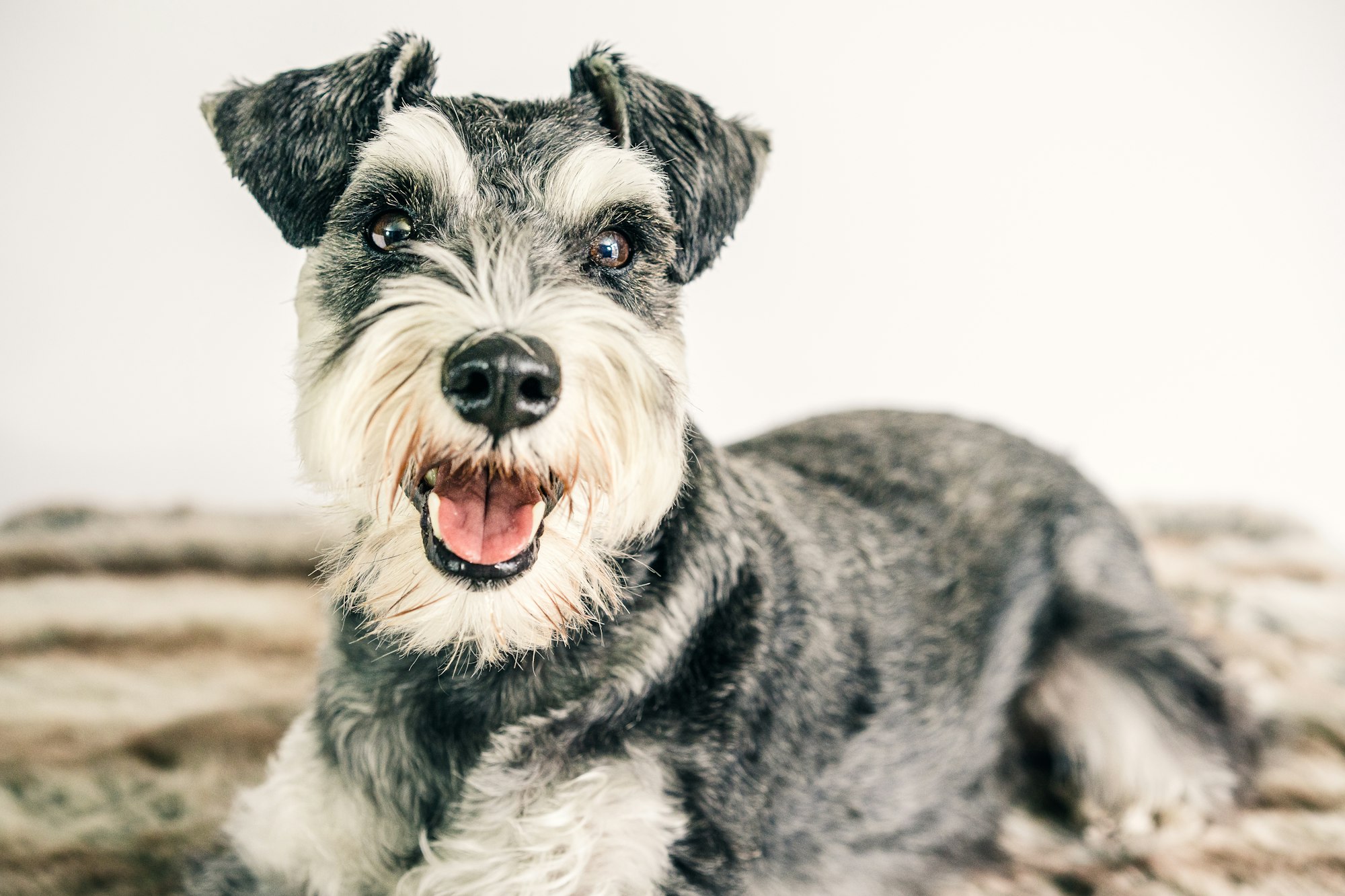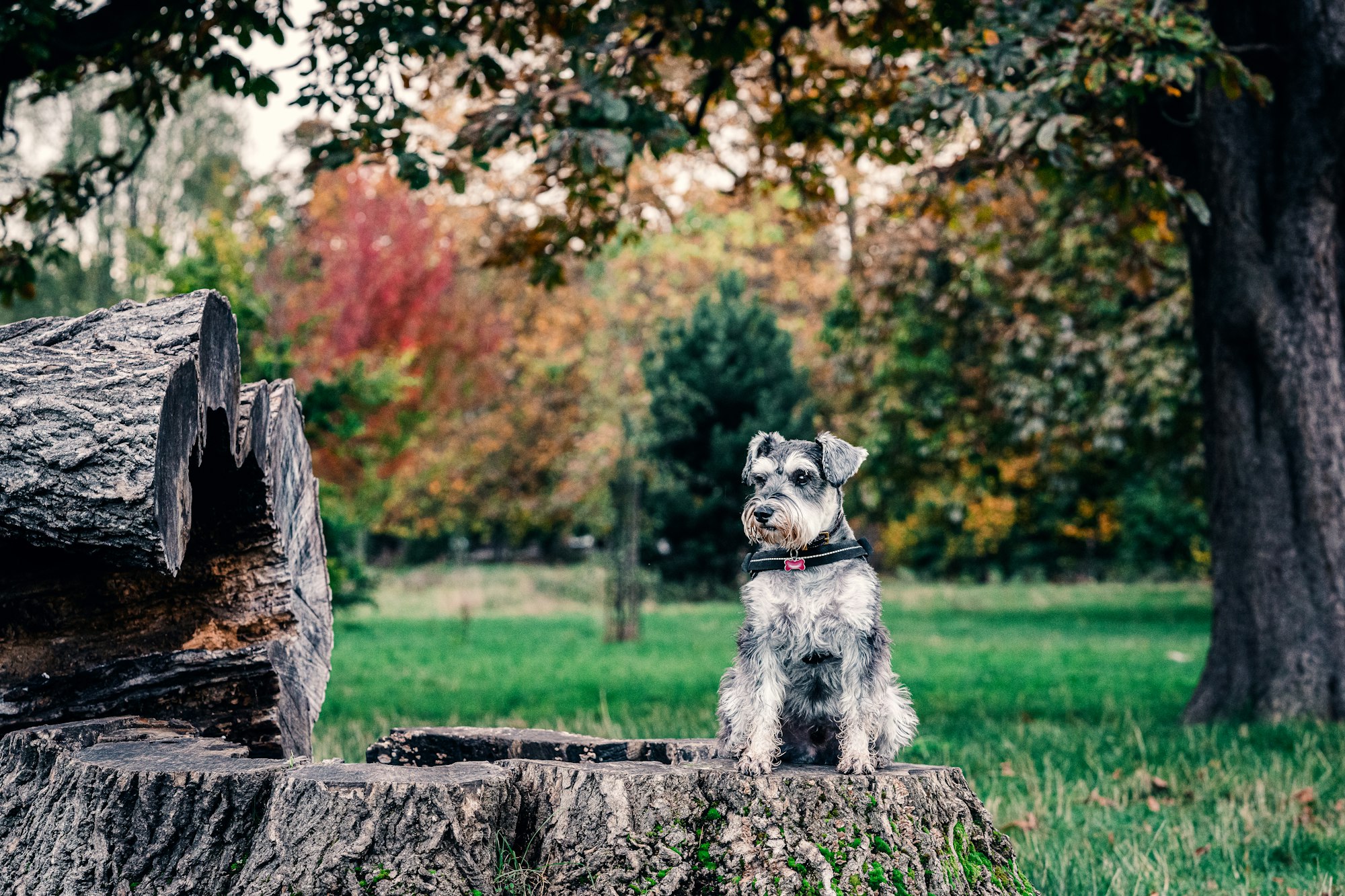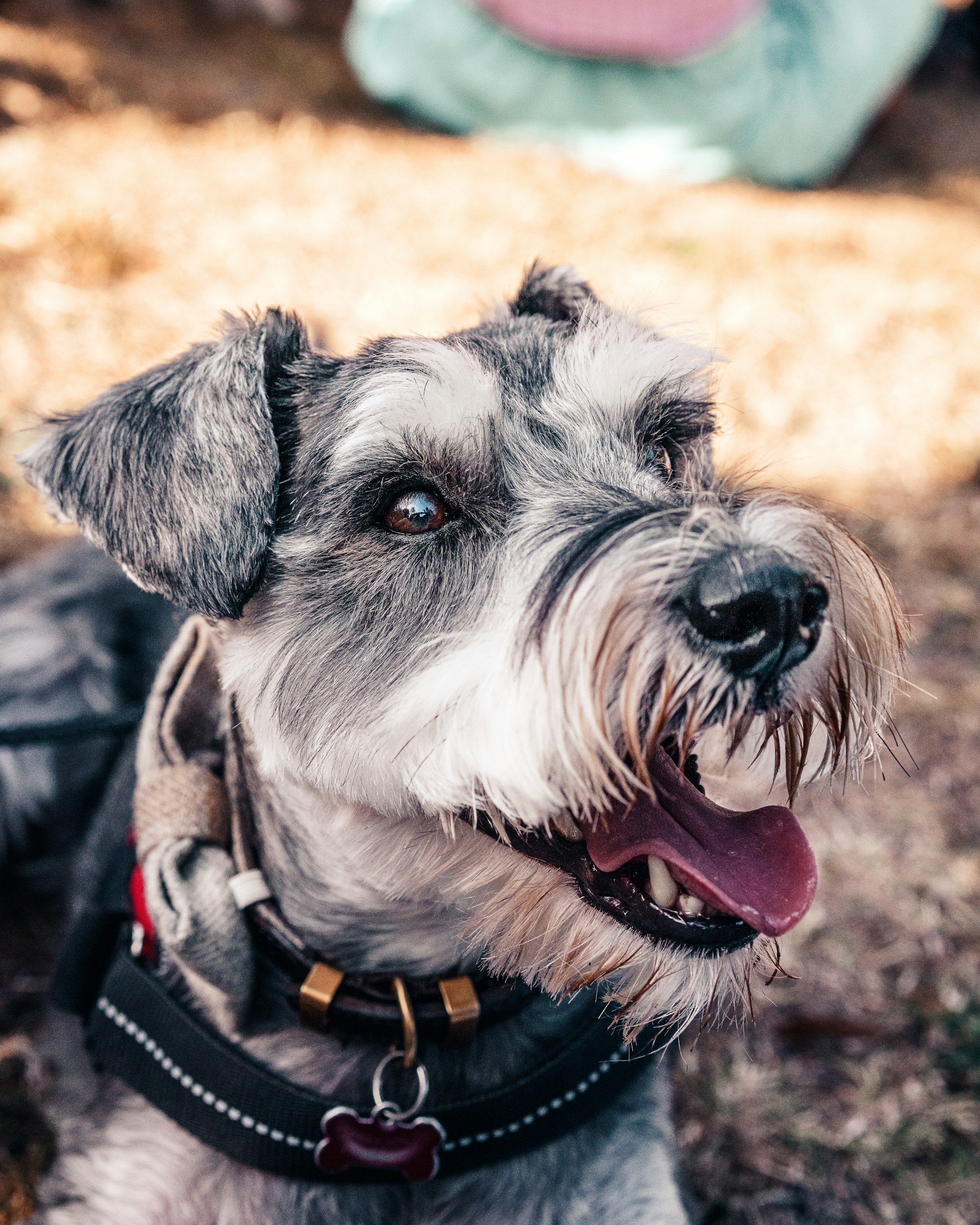When it comes to beloved canine companions, the Schnauzer dog breed holds a special place in the hearts of dog enthusiasts around the world. With their distinctive appearance, unwavering loyalty, and remarkable intelligence, Schnauzers have earned their spot as a cherished breed. In this article, we'll dive deep into the world of Schnauzers, exploring their history, characteristics, care requirements, and more.

A Glimpse into History
Origins and Development
The Schnauzer, hailing from Germany, boasts a rich history dating back to the 15th century. Bred as versatile working dogs, they were initially utilized for various tasks, including herding livestock and guarding properties. Over time, distinct sizes emerged within the breed, giving rise to the Standard Schnauzer, the Giant Schnauzer, and the Miniature Schnauzer.
The Three Sizes
- Standard Schnauzer: Stalwart and robust, the Standard Schnauzer is the original size of the breed. With their medium build and spirited personality, they excelled as vermin hunters and faithful companions.
- Giant Schnauzer: The largest of the trio, the Giant Schnauzer exudes an imposing presence. Their intelligence and strength made them ideal for tasks such as driving cattle and providing protection.
- Miniature Schnauzer: Adored for their small stature and big heart, Miniature Schnauzers captured the attention of families seeking a loving household pet. Their distinct appearance, complete with bushy eyebrows and a wiry coat, adds to their charm.
Captivating Characteristics
Appearance and Coat Care
Schnauzers' unique appearance is characterized by their wiry double coat and iconic beard. Regular grooming is essential to maintain dog coat color texture and prevent matting. Routine brushing, trimming, and occasional hand-stripping contribute to a healthy and attractive coat.
Intelligence and Trainability
Renowned for their high intelligence, Schnauzers excel in various canine activities, including obedience, agility, and even therapy work. Their sharp minds and eagerness to please make training sessions enjoyable and productive.
Energetic Disposition
Schnauzers possess a lively and energetic nature. Daily exercise is crucial to keep them mentally and physically stimulated. Engaging in activities such as brisk walks, interactive play, and puzzle toys helps prevent boredom and promotes their overall well-being.
Nurturing Your Schnauzer
Health and Wellness
Schnauzers are generally robust dogs, but they are susceptible to certain health conditions such as hip dysplasia, eye problems, and skin issues. Regular veterinary check-ups, a balanced diet, and proper grooming are essential for their overall health.
Socialization and Companionship
Schnauzers thrive on human companionship and interaction. Early socialization exposes them to different people, pets, and environments, ensuring they grow up to be well-adjusted and friendly adults.
Home Environment
Whether you live in a spacious countryside home or a cozy urban apartment, Schnauzers can adapt to various living conditions. However, providing them with enough space to play and explore is vital for their happiness.

Schnauzer Diet and Nutrition
Just like humans, a Schnauzer's well-being is significantly influenced by their diet and nutrition. Providing the right balance of nutrients, vitamins, and minerals is essential to ensure your furry companion's vitality and longevity. In this section, we'll delve into the intricacies of crafting a well-rounded diet that caters to your Schnauzer's unique nutritional needs.
Understanding Nutritional Requirements
Essential Nutrients
Protein Power: High-quality protein sources, such as lean meats (chicken, turkey, beef), fish, and eggs, form the foundation of a Schnauzer's diet. Protein supports muscle development, immune function, and overall cellular health.
Healthy Fats: Incorporating healthy fats from sources like fish oil and flaxseed helps maintain a lustrous coat, supports brain health, and provides a readily available energy source.
Carbohydrates: Complex carbohydrates from whole grains and vegetables offer sustained energy levels and aid in digestion.
Vitamins and Minerals
Vitamin-Rich Diet: Vitamins A, D, E, and B-complex are crucial for your Schnauzer's vision, bone health, skin condition, and metabolic processes. These vitamins can be found in fruits, vegetables, and fortified dog foods.
Mineral Balance: Minerals like calcium, phosphorus, and zinc contribute to strong bones, teeth, and immune function. Balancing these minerals is vital for your Schnauzer's optimal health.
Tailoring the Diet
Commercial vs. Homemade
Commercial Dog Food: Opt for high-quality, breed-specific commercial dog food. Look for brands that list meat as the primary ingredient and avoid artificial additives and fillers.
Homemade Meals: If you choose to prepare homemade meals, consult your veterinarian or a canine nutritionist to ensure the diet meets your Schnauzer's nutritional requirements.
Feeding Schedule
Portion Control: Avoid overfeeding by following portion guidelines provided on the dog food packaging or recommended by your veterinarian.
Regular Mealtimes: Establish a consistent feeding schedule to regulate your Schnauzer's metabolism and prevent obesity.
Hydration Matters
Fresh Water: Always provide clean, fresh water for your Schnauzer to stay adequately hydrated.
Moisture in Diet: Incorporate wet dog food or add water to dry kibble to increase moisture intake, supporting kidney function and digestion.
Dietary Considerations
Age and Life Stage
Puppy Nutrition: During their growth phase, Schnauzer puppies require a diet higher in protein and calories to support their rapid development.
Adult Maintenance: Adult Schnauzers benefit from a balanced diet that meets their energy needs without causing excess weight gain.
Senior Diet: As Schnauzers age, their metabolism slows down, and their nutritional needs may change. Senior-specific formulas can address their changing requirements.
Health Conditions
Food Allergies: Some Schnauzers may have food sensitivities or allergies, requiring specialized diets devoid of common allergens.
Medical Conditions: If your Schnauzer has specific health concerns, consult your veterinarian for a tailored diet that addresses their condition.
Crafting a nutritionally balanced diet for your Schnauzer is an investment in their well-being and vitality. By understanding their unique nutritional requirements and tailoring their diet accordingly, you're ensuring that your furry friend enjoys a healthy and fulfilling life by your side.
The Heartwarming Bond

Family Dynamics
Schnauzers' affectionate and loyal nature makes them exceptional family dogs. They form strong bonds with their human family members and often develop a special connection with children.
Canine Communication
Like all dogs, Schnauzers communicate through body language, vocalizations, and behavior. Understanding their cues and signals enhances the bond between you and your furry friend.
Schnauzer Roles in Society: Beyond Companionship
Schnauzers, known for their charming demeanor and distinct appearance, have carved out a special place in society that extends far beyond the role of a beloved family pet. From their origins as versatile working dogs to their modern-day contributions, Schnauzers have demonstrated their adaptability and value in various spheres. In this segment, we'll explore the diverse roles that Schnauzers have played in society throughout history and in the present day.
Historical Contributions
Rat Catchers and Guardians
- Vermin Eradication: Schnauzers' keen hunting instincts and tenacious spirit made them exceptional rat catchers in homes, farms, and businesses. Their ability to keep rodent populations in check contributed to maintaining hygienic environments.
- Guardian Duties: With a natural inclination to protect, Schnauzers were often employed as guard dogs. Their alertness and loyalty made them ideal sentinels, alerting owners to potential intruders.
Modern-Day Roles
Service and Assistance
- Therapy Dogs: Schnauzers' gentle disposition and friendly nature have made them valuable members of therapy dog programs. They provide comfort, emotional support, and companionship to individuals in hospitals, nursing homes, and other therapeutic settings.
- Search and Rescue: Miniature Schnauzers, with their compact size and intelligence, have been trained for search and rescue missions. Their agility and determination aid in locating missing persons in challenging terrain.
Canine Sports and Activities
- Agility Champions: Schnauzers' agility and quick thinking shine in dog sports like agility competitions. Their ability to navigate intricate obstacle courses showcases their intelligence and athleticism.
- Obedience Contests: Known for their trainability, Schnauzers excel in obedience trials, showcasing their ability to follow commands and perform complex tasks.
Assisting Individuals with Disabilities
- Guide Dogs: Giant Schnauzers, with their size and strength, have been trained as guide dogs for individuals with visual impairments, offering guidance and companionship.
- Service Dogs: Schnauzers, across all sizes, have been trained as service dogs to assist individuals with disabilities, performing tasks such as retrieving items, opening doors, and providing stability.
Advocates for Change
Canine Ambassadors
- Educational Programs: Schnauzers have been involved in educational programs aimed at teaching responsible pet ownership, promoting dog safety, and fostering empathy toward animals.
- Awareness Campaigns: Schnauzer enthusiasts often engage in awareness campaigns about responsible breeding practices, proper care, and the importance of adopting shelter dogs.
Schnauzers have proven themselves to be more than just adorable companions. Their rich history and versatile abilities have enabled them to take on meaningful roles in society, from vermin hunters to therapy dogs and everything in between. Their unwavering loyalty, intelligence, and versatility continue to make them cherished members of families and communities alike, leaving a lasting paw-print on the hearts of many.
Schnauzer Pricing: Factors Influencing Costs
Adopting a Schnauzer into your family comes with the joy of companionship, but it's critical to be aware of the financial considerations associated with bringing home a new furry friend. The cost of acquiring a Schnauzer can vary widely based on several factors. In this section, we'll delve into the average pricing of Schnauzers and the key elements that influence their price range.
Factors Affecting Schnauzer Pricing
Breed Type and Size
- Standard Schnauzer: As the original size of the breed, Standard Schnauzers often command a higher price due to their historical significance and versatility in various roles.
- Giant Schnauzer: The largest of the three sizes, Giant Schnauzers are typically priced higher due to their impressive size and potential as working or protection dogs.
- Miniature Schnauzer: Miniature Schnauzers are a popular choice for families, often making them more readily available and competitively priced.
Breeder Reputation and Location
- Reputable Breeders: Ethical breeders who prioritize the health and well-being of their dogs may charge higher prices. Their commitment to responsible breeding practices contributes to the overall quality of the puppies.
- Geographical Location: Prices can vary based on the cost of living in different regions. Urban areas or regions with higher demand may have higher prices compared to rural areas.
Pedigree and Bloodline
- Show-Quality vs. Pet-Quality: Schnauzers from champion bloodlines and those with show potential may be priced higher due to their lineage and potential for success in dog shows.
- Pet Companions: Schnauzers intended as family pets, without a focus on show or breeding potential, are typically priced lower.
Health Screening and Vaccinations
- Health Checks: Puppies with thorough health screenings, vaccinations, and a clean bill of health may have a higher initial cost due to the investment in their well-being.
- Unvaccinated Puppies: Puppies without up-to-date vaccinations or health clearances may be more affordable initially but could lead to higher medical expenses down the line.
Inclusions and Additional Costs
- Spaying/Neutering: Some breeders include the cost of spaying or neutering in the purchase price, while others may require the new owner to cover this expense separately.
- Microchipping and Registration: These additional services can influence the overall cost of acquiring a Schnauzer.
Average Pricing Range
The average price of a Schnauzer can vary significantly based on the factors mentioned above. On average, you can expect to find:
- Standard Schnauzer: $800 to $2,500
- Giant Schnauzer: $1,200 to $3,500
- Miniature Schnauzer: $500 to $2,000
It's important to note that these ranges are approximate and can vary based on the breeder, location, and specific circumstances.
Total Cost of Ownership
Remember that the initial purchase price is just one part of the total cost of owning a Schnauzer. Additional costs to consider include food, grooming, veterinary care, training, and supplies.
When considering bringing a Schnauzer into your life, it's essential to have a clear understanding of the factors that influence their pricing. While the initial cost varies based on size, breeder reputation, and other considerations, the true value of a Schnauzer lies in the companionship and joy they brings to your family.
Conclusion
In the realm of canine companions, the Schnauzer dog breed stands out as a charismatic and intelligent choice. From their fascinating history to their endearing characteristics, Schnauzers have rightfully earned their place as beloved pets. Whether you're drawn to the stately Standard Schnauzer, the imposing Giant Schnauzer, or the charming Miniature Schnauzer, one thing is certain: a Schnauzer's unwavering companionship is a treasure to be cherished.
FAQs About Schnauzer
Q1: Are Schnauzers hypoallergenic?
- Yes, Schnauzers are considered hypoallergenic, making them a suitable option for individuals with allergies.
Q2: Do Schnauzers get along with other pets?
- With proper socialization, Schnauzers can coexist harmoniously with other pets, including cats and other dogs.
Q3: How much exercise do Schnauzers require daily?
- Schnauzers benefit from around 60 minutes of exercise daily to keep them mentally and physically engaged.
Q4: Are Schnauzers prone to excessive barking?
- While Schnauzers may bark to alert their owners, consistent training and mental stimulation can help manage excessive barking tendencies.
Q5: Do Schnauzers have a strong prey drive?
- Schnauzers do have a moderate prey drive, but early training and socialization can help mitigate this behavior.

